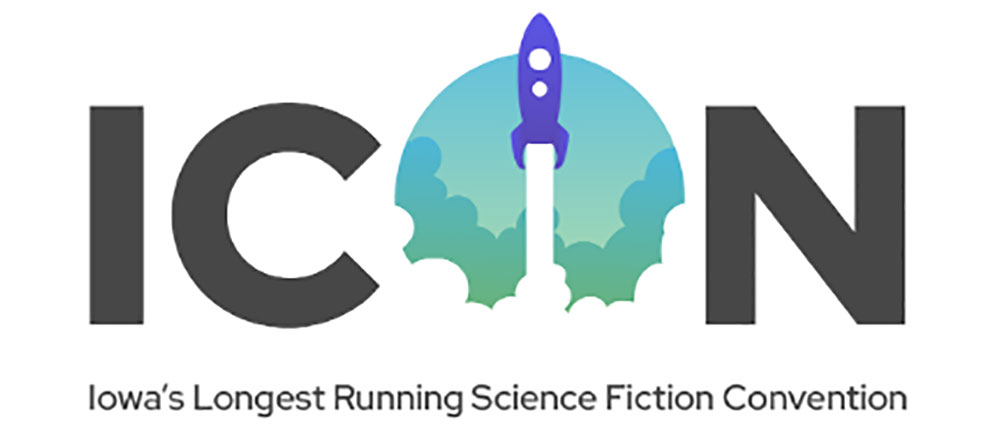
This past weekend, I attended and spoke at ICON 48, the science fiction convention in Cedar Rapids, Iowa. What a great time!
On Friday night, I spoke at a very imaginative panel on the topic of “Dyson Spheres and other Megastructures in Space.” Tony Penticoff did a marvelous job of monitoring the panel (and making an informative presentation) while Bill Pitcher and I talked about various aspects of these structures. The ten audience members seemed engaged, and asked several detailed questions.
My first Saturday morning panel covered “Embracing Technology isn’t only for the Young.” (How would I know? I’m not old yet.) Still, Michael Fraska and I talked about that topic in an informed way and I think the three attendees got something out of it.
Next came an Author Meet and Greet. I sat at a table with Myron Williams while prospective readers stopped to talk. To my surprise, I sold a couple of books.
After lunch, I moderated a panel on the topic of “Riding the Publishing Roller-Coaster,” and authors Tom Ashwell and Jim Hines (ICON toastmaster and Hugo award winner) helped the seven members of our audience understand the ups and downs of the writer-publisher relationship.
In mid-afternoon, I moderated a panel called “The Rapid Increase of Population Growth” with retired EPA scientist Paul Price. He gave the eight-member audience a much better understanding of the rise in human population. Though the world’s populace may experience some problems in the near term, it may be best to worry about something else.
Nobody attended my scheduled author reading with fellow author Trisha Anderson. I chatted with her for some time, though, and spent a pleasant half hour learning about her novels.
Saturday night, I served as a panelist for two artificial intelligence topics. The first, “Artificial Intelligence in World of Creators,” drew a crowd of three people, but moderator Tony Penticoff and panelists Joseph Isenberg and I explored how AI may soon create stories as well as human writers can. We might have to adapt to a future where AI writes better fiction.
The next panel, “How AI Will Transform Our Lives Over the Next Five Years,” garnered an audience of eleven. Tony Penticoff moderated this panel as well, and Bill Pitcher joined us. A lively discussion occurred, with great audience participation.
Sunday mornings at scifi cons tend to be subdued after attendees have stayed up late the past two nights, and a sense of winding down pervades the hotel. However, eight alert and curious audience members gathered for a 10:00 am panel titled “First Time Authors – How to Get Published.” I moderated, while authors Tom Ashwell and Athena Foster imparted excellent advice.
At noon I moderated an interesting panel called “Writing a Compelling Fight Scene.” Author Alexis D. Craig did a masterful and enthusiastic job of educating the ten-person audience about how best to do that.
My last panel, “How Do I Get My Work Out There?” started at 1:00. Author Rachel Aukes moderated, and author Megan Mackie sat on the panel with me. I believe the six attendees of this panel walked out with solid tips on how to get their manuscripts published.
All in all, a wonderful con, and, having grown up in Cedar Rapids, it represented a nice homecoming for—
Poseidon’s Scribe

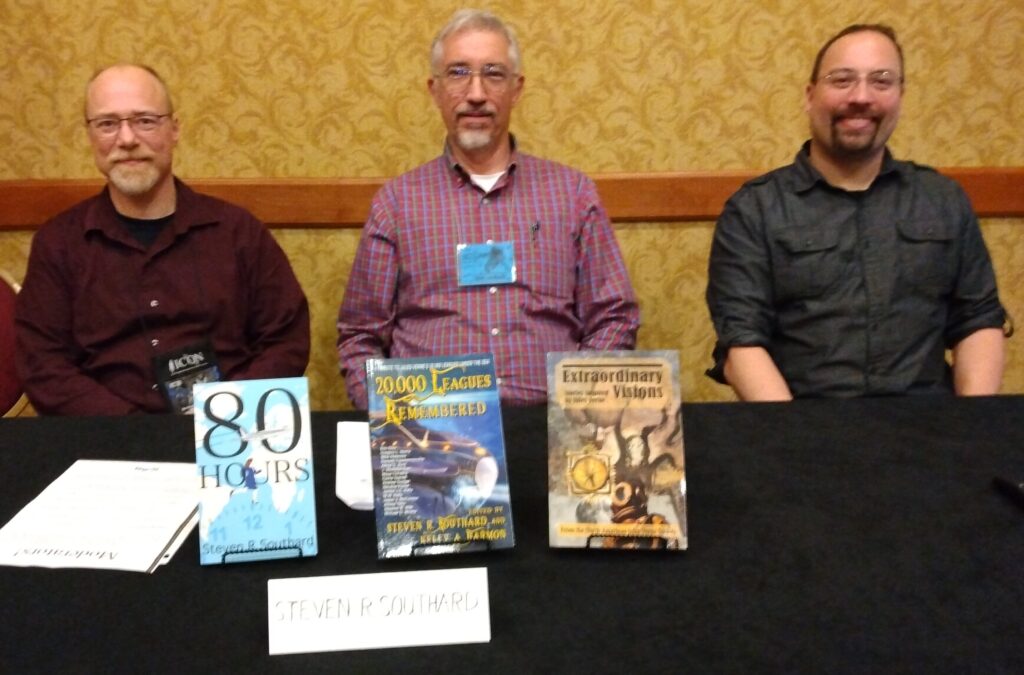
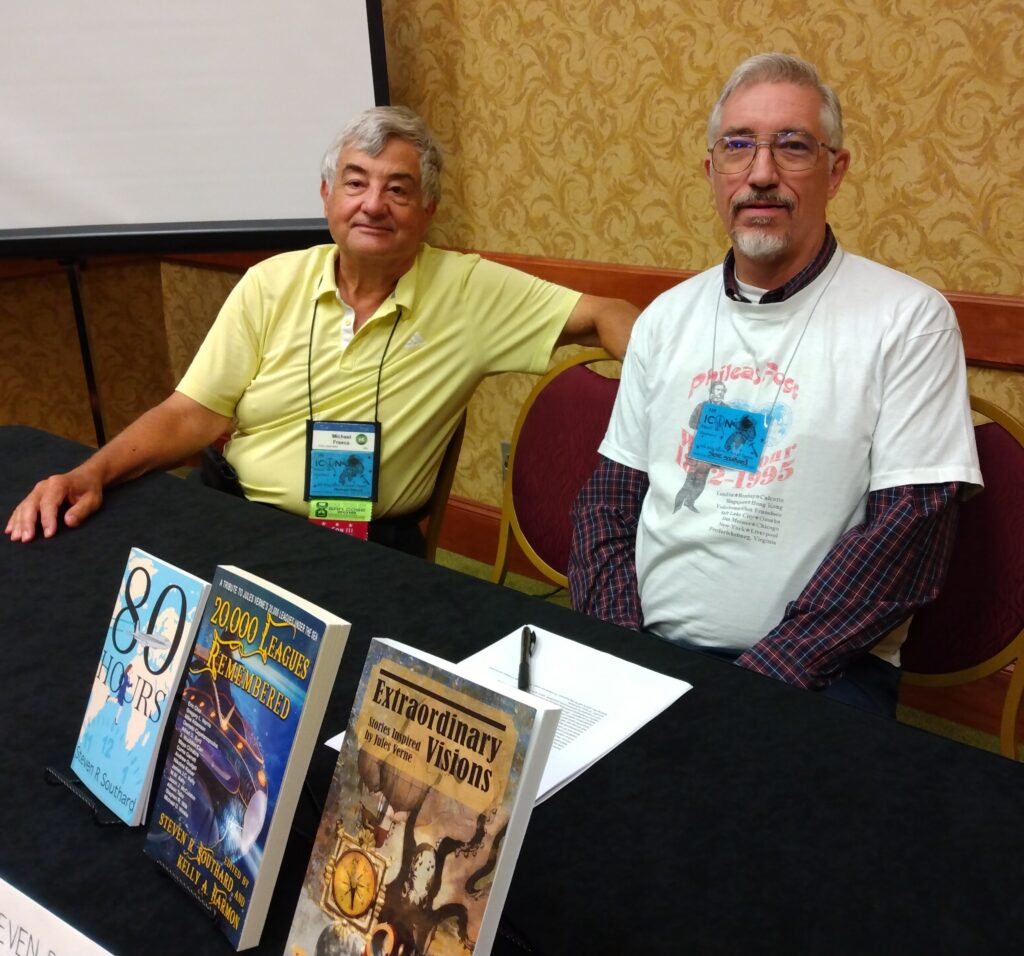
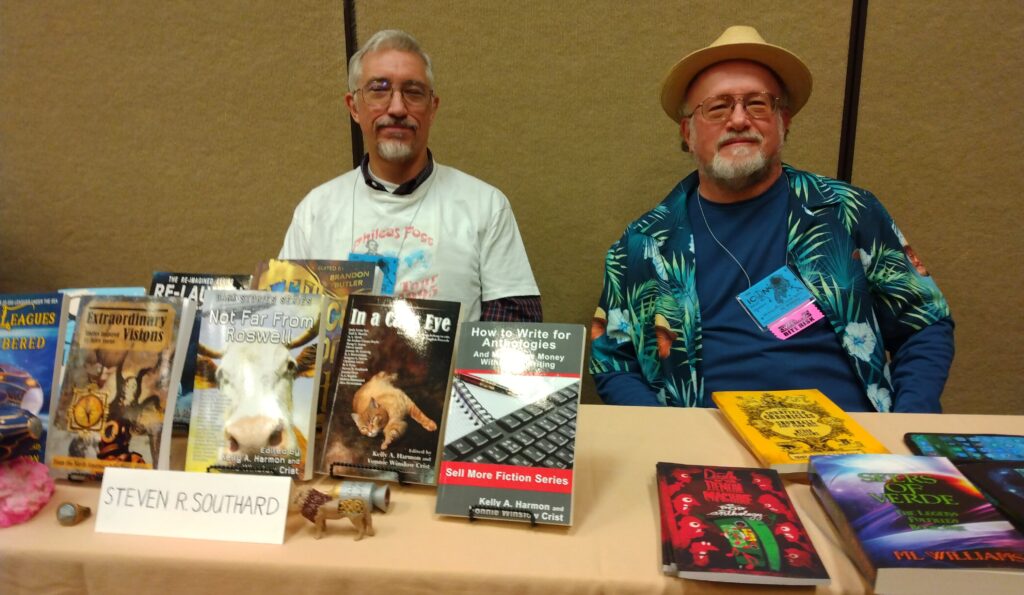

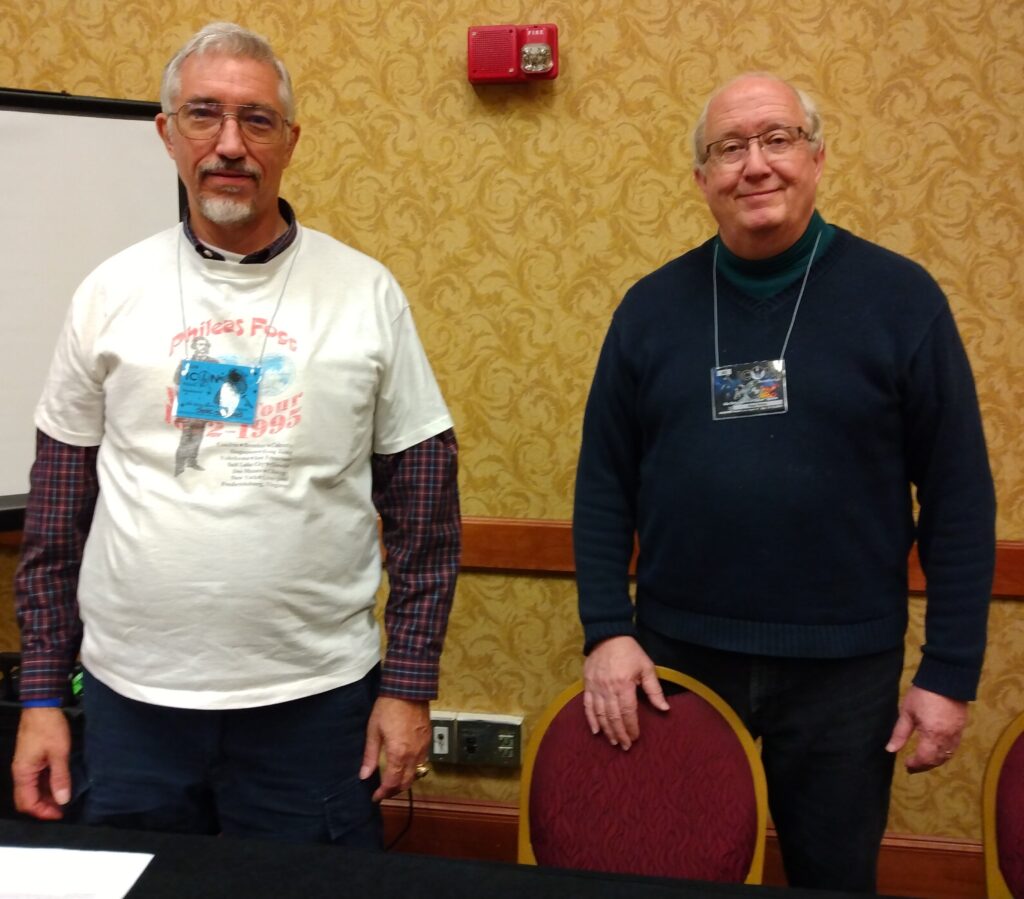
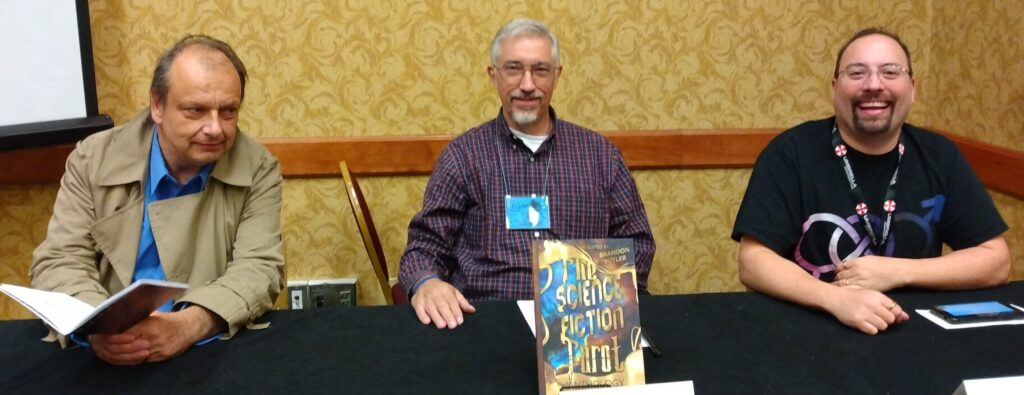
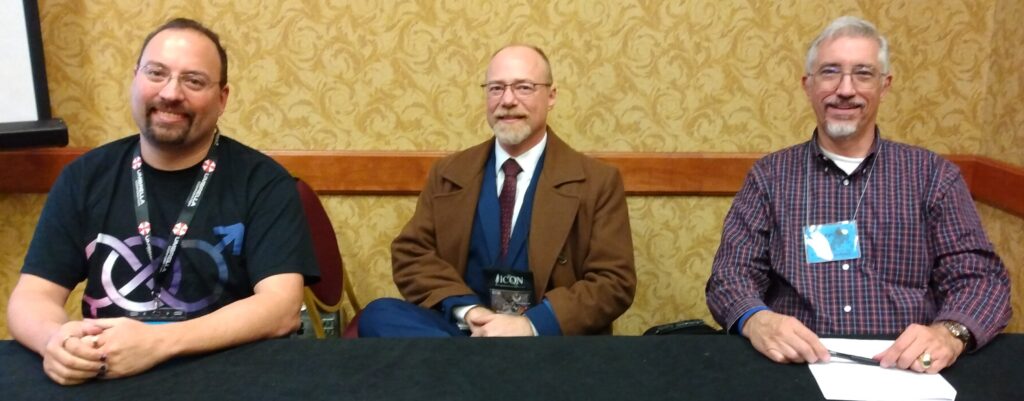
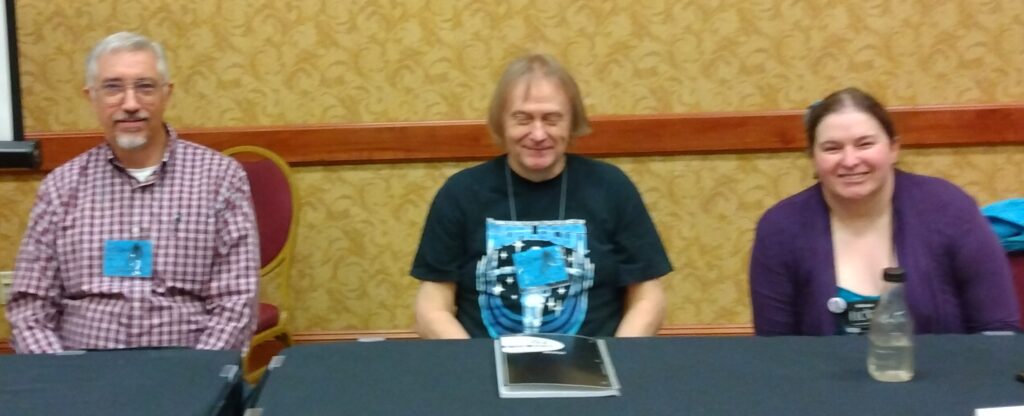
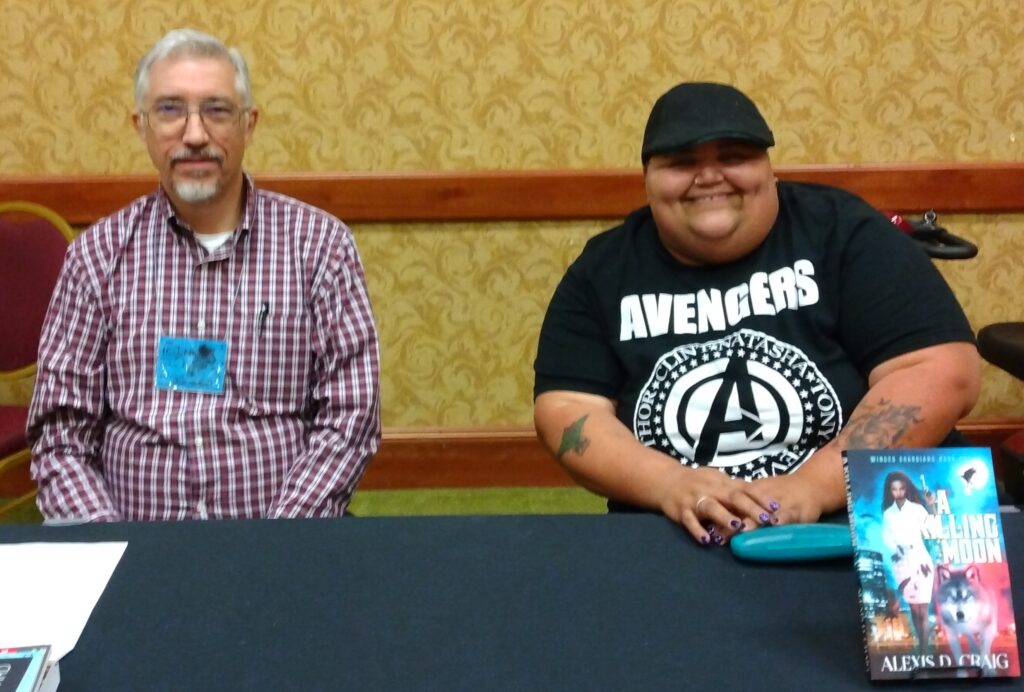
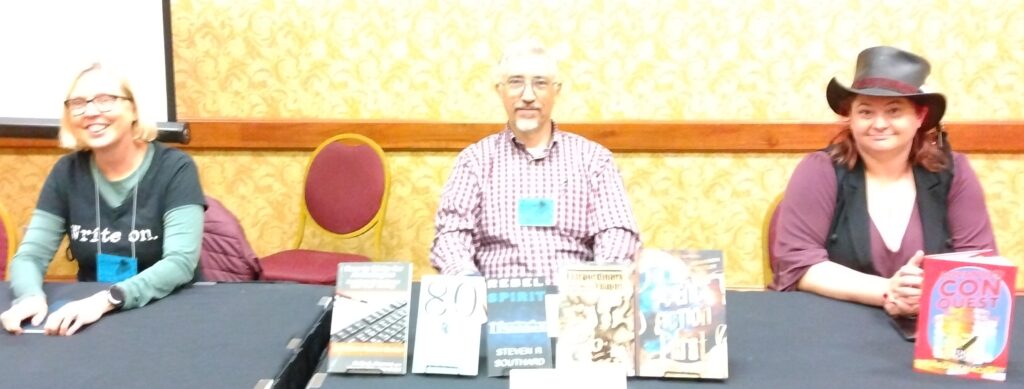
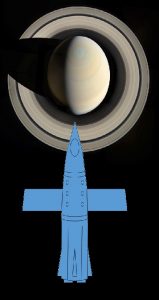 The old stereotype was that male authors wrote hard science fiction, plot-driven stories that were true to science; and female authors wrote soft science fiction, character-driven stories that verged into magic and fantasy without a firm backing in scientific principles. Moreover, some considered the former true science fiction and the latter not SciFi at all.
The old stereotype was that male authors wrote hard science fiction, plot-driven stories that were true to science; and female authors wrote soft science fiction, character-driven stories that verged into magic and fantasy without a firm backing in scientific principles. Moreover, some considered the former true science fiction and the latter not SciFi at all.